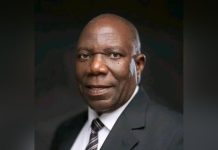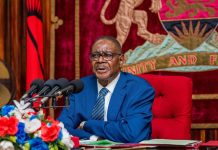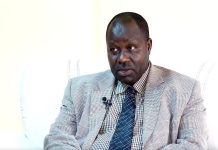By nyasatimes
Africa-Press – Malawi. The Malawi Electoral Commission (MEC) on 29 September 2025 announced the first batch of results for the parliamentary elections held on 16 September 2025, declaring dozens of winners across the country while withholding others pending reviews and by-elections.
MEC Chairperson, Justice Annabel Mtalimanja, said the declaration covered results that had been verified and cleared of legal disputes, with a handful of constituencies still unresolved due to nullifications, court orders, or the need for examination of void votes.
Which Constituencies Are In, Which Are Out?
So far, MEC has declared results in over 70 constituencies spanning the Northern, Central, and parts of the Southern Region.
However, some constituencies remain undecided:
Lilongwe Chilobwe – went uncontested, MCP’s Lawrence Chaziya declared winner.
Blantyre West – elections postponed following the death of an MCP candidate.
Nkhotakota Liwaladzi & Dedza Mtakakata – suspended by court orders over nomination fee disputes.
Lilongwe Mtandire-Mtsiriza – results nullified due to irregular handling of void votes.
Mzimba South East & Nkhata Bay Central – pending MEC’s examination of void votes.
This means the parliamentary picture is incomplete, with final tallies expected after fresh by-elections and the conclusion of legal reviews.
Independents: The Rising Wave
The biggest story so far is the extraordinary performance of independents. Constituencies like Chitipa North, Kasungu South East, Nkhotakota Central, and Mzimba Kafukule all fell to independents, reflecting voter fatigue with party politics. Many independents not only won but did so with wide margins — a sign that trust in individuals is outpacing loyalty to political parties.
MCP: Still Dominant, But Leaking Support
The ruling Malawi Congress Party (MCP) has maintained a stronghold across much of the Central Region, securing high-profile victories in Kasungu, Dowa, and Ntchisi. Heavyweights like Richard Chimwendo Banda and Catherine Gomezgani Hara retained their seats, reaffirming MCP’s presence.
Yet, the party is bleeding in some areas — losing ground to independents in Kasungu and to DPP in parts of the North. The nullification in Lilongwe Mtandire-Mtsiriza, an MCP fortress, is a fresh setback.
DPP: A Flicker of Revival
The Democratic Progressive Party (DPP), once thought weakened, is showing signs of recovery. The blues secured important victories in the Northern Region, including Mzimba Hora, Rumphi North, Likoma Islands, and Nkhata Bay West. Their showing indicates a base that remains alive and could fuel a stronger challenge in the 2030 elections.
UTM: A Harsh Reality Check
The UTM Party endured a bruising performance, with candidates underperforming across constituencies. In many places, UTM polled in the hundreds while rivals scored in the thousands. Only a handful of constituencies like Mzimba North (Catherine Mzumara) offered solace. The once-energetic party now faces an identity crisis.
Smaller Parties: Symbolic Wins Only
AFORD held its ground in Rumphi and picked up scattered seats.
PP clinched Kasungu North and a few lakeshore constituencies.
UDF managed to stay relevant with minor wins.
Odya Zake Alibe Mlandu Movement made a symbolic mark but remains on the fringe with very low tallies.
Analysis: A Fragmented Parliament in the Making
The declared results so far suggest that Malawi is heading into a fractured Parliament:
Independents are emerging as potential kingmakers.
MCP remains the largest single bloc but weaker than in 2019.
DPP is resurging and regaining credibility.
UTM is shrinking fast, risking irrelevance.
Coalition-building and bargaining will be the new normal, as no single party will easily dominate legislative processes.
What’s Next?
MEC has promised to return today (30 September 2025) with additional declarations once outstanding disputes and void vote examinations are concluded. Only then will Malawians know the full composition of the 193-member Parliament.
For now, the 2025 elections have redrawn Malawi’s political map — confirming public frustration with established parties, lifting independents to new heights, and opening the door to a more unpredictable, deal-driven Parliament.
Source: Malawi Nyasa Times
For More News And Analysis About Malawi Follow Africa-Press






